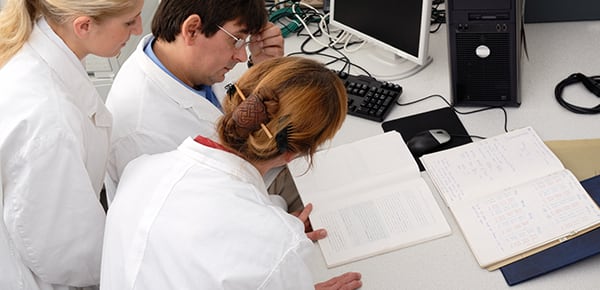


















It’s exciting to see that NGS-related bioinformatics advances are having an impact in clinical labs. We’ve been following that trend closely — so we are glad to read some excellent coverage of the topic recently in the highly regarded magazine CAP Today. We recap two of the articles here, and if you’d like you should of course give each of them a full read.
In “3 new NGS Surveys on CAP 2016 PT Launchpad,” author Anne Paxton highlights the overwhelmingly positive response to the College of American Pathologists’ (CAP) first proficiency testing for NGS. Some 130 labs participated, a far cry from the 35 labs CAP originally anticipated. This success prompted the group to expand its proficiency testing challenge to include bioinformatics in 2016, focusing first on molecular oncology and the detection of somatic mutations. CAP also expects to issue bioinformatics-based challenges in 2017 for germline variation and genetic disorders. In the story, Karl Voelkerding, chair of the CAP project team, says that the complexity inherent in NGS bioinformatics created a multitude of opportunities to organize, interpret, and deliver data.
An article from William Check entitled “Next-gen sequencing settling in, making its mark” touches on the increasing likelihood of finding NGS technology in labs at large health systems and hospitals (due in part to faster rates of reimbursement), as well as the reluctance of some clinical pathologists to embrace the technology. According to Check, technologies such as the Human Genome Mutation Database enable a strong evidence base when combined with high clinical utility. Her story is a testament to the value bioinformatics can bring to the clinical setting, particularly when testing can cover up to 500 genes in a single panel. The data produced by such testing is unwieldy, and requires a comprehensive bioinformatics solution to help clinicians identify the disease-causing variants that might otherwise have been missed. The author points out that many pathologists lack in-depth genomics or genetics training, which often creates a daunting obstacle for broader adoption of NGS technologies. He closes his story with practical pointers for pathologists to minimize their risk of being marginalized in this industry, where NGS and bioinformatics are playing an ever-increasing role.
Our team has spent many years developing expertise in content curation and genomic data analysis, and now we’re using that foundation to help clinical labs make quicker work of their data interpretation. We look forward to seeing how innovative bioinformatics approaches can make NGS-based testing more robust and reliable in the coming years.
Learn about QIAGEN Clinical Insight.